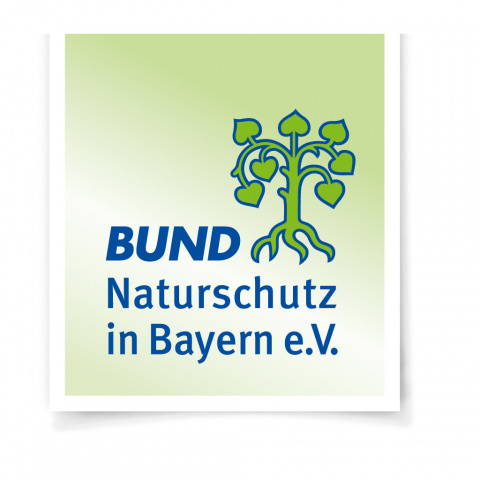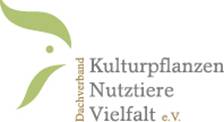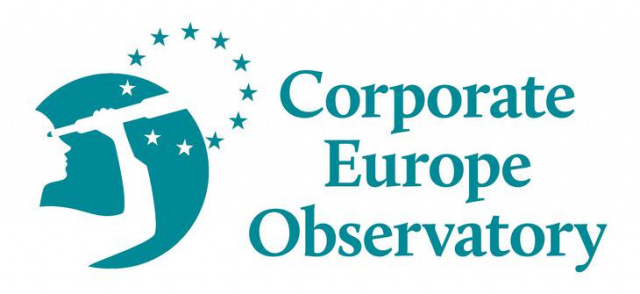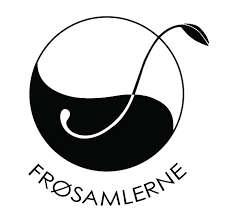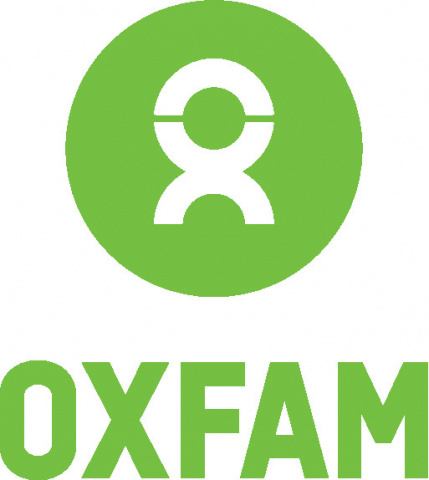The Statute (version from 27 February 2020) is as well available as a pdf document.
Statute of the Organization “No Patents on Seeds!”
Translation from German to English. Only the German version of this document is binding.
Last changes in translation: 27 February 2020
§1
Name, seat of the Organization, reporting year
§1.1 The name of the organizations is “No Patents on Seeds!” (German: “Keine Patente auf Saatgut!”).
It shall be registered in Germany as non-profit organisation with the suffix “e.V.”.
§1.2 The organization is seated in 80807 Munich. The Organization was founded on 8 May 2018. Its activities are governed by German law.
§1.3 The Organization is politically, ethnically and religiously neutral.
§1.4 The reporting year of the Organization corresponds to a calendar year.
§1.5 The Organization solely pursues matters immediately in the public interest, as foreseen in the section “tax-privileged purposes” of §51 ff. AO.
§ 2
Purpose of the Organization
§ 2 Nr. 1 Purpose of the Organization is environmental protection. Humans, animals and the biological diversity shall be protected from negative impacts of patents on food crops and livestock.
An objective is to ensure, that breeding of food crops and livestock in Europe shall not be restricted by patents. A main focus is placed on conventional and traditional plant and animal breeding.
Breeders, farmers and gardeners shall be able to breed and cultivate, reproduce and produce food crops and livestock independent of patent claims on plants and animals, breeding material or genetic foundations.
Thus, the diversity of choice for farmers, food producers and consumers shall be promoted, the adaption of breeding to regional and environmental conditions shall be facilitated and the biological diversity on agricultural fields shall be preserved or rather increased.
In addition, examples and positive influences for other countries and regions, especially developing countries, in terms of access to seed material and the preservation of regional species shall be made.
The statutes will be achieved by appeals at the European Patent Organization, political initiatives, scientific research, research of patents, organization of events, presentations and discussions with a relevant target audience and the formation of a European network for the purposes of the Organization.
§ 2 Nr. 2 The Organization is non-profit making, it does not primarily pursue economic purposes for its own means.
§ 2 Nr. 3 Funds of the Organization are only to be used in accordance with the objects of this statute. Members receive no payments from the funds of the Organization.
§ 2 Nr. 4 No person may benefit from expenditures that are not related to the purposes of this Organization, or through inappropriately high allowances.
§ 2 Nr. 5 Volunteers are only entitled to compensation for proven expenses.
§ 3
Acquisition of membership
§ 3 Nr. 1 Any natural or legal person can become a member.
§ 3 Nr. 2 Applicants for membership must submit a written application, which will be forwarded to the members after a formal inspection. The application must be supported by two members of the Organization. The admission is approved by a two-thirds majority vote by the members.
§ 3 Nr. 3 In addition to § 3 Nr. 2, the admission of a new member can be approved by electronic means in between general meetings. Members will be informed about applications and the quorum. Members will then submit their decision to the Management Board within four weeks. The admission is approved by a two-thirds majority vote by the members. Otherwise, the provisions of section 3 apply.
§ 3 Nr. 4 In case the admission into the Organization is denied, the decision is not voidable.
§ 4
Termination of membership
§ 4 Nr. 1 The membership terminates
- with the death of the member
- by resignation
- by deletion from the membership list
- by exclusion from the Organization
- by termination without assigns in case of a legal person
§ 4 Nr. 3 Voluntary resignation shall take effect by submitting a written declaration to a member of the Management Board and is subject to a notice period of three months. A member can be deleted from the membership list by resolution of the Management Board if the member is in arrears with the membership payment despite two warnings. The member must be informed of the deletion in writing. A member, who has violated the interests of the Organization, can also be excluded through decision of the general meeting. Prior to the decision, the member shall be granted an opportunity to state its position. If this is done in writing, then the statement must be read out at the General Meeting.
§ 5
Membership fees
§ 5 Nr. 1 The amount of the membership fee and exceptions shall be determined by the General Meeting of members. Further regulations are regulated by the rules of procedure.
§ 6
Bodies of the Organization
- Management Board
- General meeting of members
§ 7
Management Board
The Management Board consists of
- the first chairperson
- the second chairperson
- the third chairperson.
The combination of more Board functions in one person is not permitted. The Board members work voluntarily and are unpaid. Material expenses may be charged to the Organization.
§ 8
Term of office for the Management Board
The Management Board is elected by the General meeting of members for the term of three years, starting on the day of election. It stays in its position until a new election or dismissal by the General meeting of members. If a member of the Management Board (§7 a-c) leaves during the term, the remaining members of the Management Board shall elect a substitute member from the members of the association. The members shall be informed immediately of the nomination by the Management Board. The new member of the Management Board shall be elected at the next General Meeting of Members. The members have, in line with §14, the possibility to invoke an extraordinary General Meeting at any time.
§ 9
Functions of the Management Board
§ 9 Nr.1 The Management Board makes its decisions in board meetings, which will be set up by the first or the second chairperson in writing, by phone or by digital media. In any case, there shall be a convocation period of at least three days. The indication of an agenda is not necessary. The Management Board constitutes a quorum, if at least two of its members are present. In case of a quorum, the majority of all valid votes makes the decision. In case only two members are present, the vote has to be taken unanimously. The decisions of the board are to be protocolled. A decision of the board can be decided upon by writing or telephone, in case all board members agree on it.
§ 9 Nr. 2 The Management Board delegates key tasks to the Executive Director. Details will be regulated by Management Regulations.
§ 9 Nr. 3 The Organization shall be represented judicially and otherwise by the first chairperson or the second chairperson. Each of these two members of the Management Board holds sole power of representation.
§ 9 Nr. 4 Liability of the members of the Management Board towards the Organization is limited to intentional or grossly negligent conduct. The Management Board is authorized to agree upon a limitation of liability with other appointed representatives of the Organization.
§ 9 Nr. 5 If a negligent, compensation or injunction claim is made against a member of the Management Board or any other appointed representative of the Organization by a third party, the Organization will indemnify the member from any claims of the third party, if they are in relation to any tasks for the Organization.
§ 10
General Meeting of members
In the general meeting of members any present member has one vote. Votes can be transferred to another member.
The General Meeting is responsible for the following tasks:
- Receiving the annual report of the Management Board, discharge of the Management Board
- Assessment, exemptions and the due date of the membership fee
- Election and dismissal of the Management Board
- Resolutions concerning changes of the Statutes and the termination of the Organization
- Establishing the Rules of Procedure
§ 11
Convening of the General Meeting
At least once a year there shall be an ordinary General Meeting. It is convened by the Management Board two months before the meeting takes place in writing along with the draft agenda. The agenda is decided upon by the Management Board in agreement with the members (if necessary) and made available to the members latest two weeks before the General Meeting. Unless special circumstances are given, documents for the meeting are sent out together with the agenda.
§ 12
Resolutions of the General Meeting and documentation
The first chairperson will chair the General Meeting. If absent, the second chairperson or any other member of the Management Board will replace him/her. If no member of the Management Board is present, the General Meeting will decide upon a chair. The chair will appoint a person for recording the meeting. The chair will decide upon the method of voting. The vote has to be done in writing, if a third of all present members requests so. The General Meeting is not public.
Any ordinary General Meeting is quorate, if at least half of the members are present. Unless provided otherwise, the General Meeting decides by simple majority of the valid votes. Abstentions remain out of consideration. To change the statues (including the purpose of the organization) a majority of three quarters of all valid votes is needed, to terminate the organization a majority of four fifths.
The following applies for the vote: if no candidate obtains a majority of the valid votes in the first round of voting, a runoff election between the two candidates with the highest votes will be held.
A protocol is to be recorded about the decisions of the General Meeting. It is to be signed by the chair of the meeting and the recording person. It shall include following details: the place and time of the meeting, the names of the chair of the meeting and the recording person, the number of present members, the agenda, the results of all votes and the method of voting. In case of a change of statues, the changes must be recorded.
§ 13
Subsequent request for the agenda
Any member can request a topic for the agenda in writing to the Management Board until latest a week before the General Meeting. The chair of the meeting has to change the agenda accordingly at the beginning of the meeting. Any application for a topic made at the General Meeting, has to be decided upon by the General Meeting. A majority of three quarters is required for the application to be approved.
A change of statutes, a termination of the organization as well as a vote and the dismissal of a member of the Management Board can only be decided upon, if they were announced with the agenda.
§ 14
Extraordinary meeting
The Management Board can call for an extraordinary meeting anytime. It must be convened, if the interests of the organization request so or if the convene is requested from the Management Board by a tenth of all members in writing including the purpose and the reason. §§10,11,12 and 13 apply accordingly for the extraordinary meeting, with the exemption that the notification must be only 3 weeks before.
§ 15
Distribution of assets upon termination of the organization
§ 15 Nr. 1 The termination of the organization can only be decided by the General meeting according to the majority of votes according to § 12. If the General Meeting does not decide otherwise, the first chairperson and the second chairperson act jointly as representatives in the liquidation process. The stated regulations apply in the case that the organization is liquidated for another reason or loses its capacity to act.
§ 15 Nr. 2 In the event of the dissolution or abolition of the organization the assets will go to Gen-ethische Stiftung, based in Vaterstetten, which has to use it immediately and only for the purpose of charitable purposes.
§ 16
Cash audit
§ 16 Nr. 1 The General Meeting elects a cash auditor out of all members.
§ 16 Nr. 2 The auditor's tasks shall be to examine accounting records and check them for compliance with the requirements defined in the statutes and in the association's resolutions.
§ 17
Fiscal year and accounting
§ 17 Nr. 1 This company's fiscal year is the calendar year, starting on January 1 and ending on December 31. The first fiscal year begins on the day on which the organization is registered and ends on the following December 31.
§ 17 Nr. 2 The Management Board or the Executive Director must present the annual financial report within nine weeks of the end of the fiscal year to the auditor.
§ 17 Nr. 3 The Management Board must audit the annual report within six months of the end of the fiscal year. Members shall be given the opportunity to inspect the audit latest two weeks before a General Meeting, where decisions about the annual audit shall be made.
---
The present statute was approved by the founding meeting on 9 May 2018.
§ 2 was changed at the general meeting of members on 21 February 2019.
§ 7-9 were changed at the general meeting of members on 27 February 2020.


